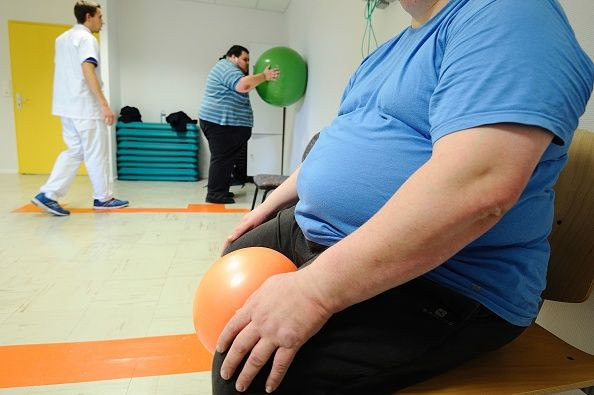Brain Circuitry Holds Key To Treating Obesity: Study

KEY POINTS
- Food impulsivity is responsible for overeating, weight-disorders
- Physiology of the brain regulates capacity to say no to food
- MCH-producing brain cells control food impulsivity
Overeating has been an issue for most of us at some time or the other. Some people have been able to control it, but others who haven’t been able to do it suffer from issues such as weight gain and obesity.
A new study has looked into how food craving affects the brain. Food craving leads to loss of self-control and eating even when your brain tells you that the foodstuff may be harmful to your health. Impulsivity is one of the reasons behind overeating, binge eating, weight gain, obesity and many psychological disorders such as drug addiction and gambling addiction.
The researchers have found that a specific circuit in the brain causes impulsivity. Because the researchers have identified this circuit, this holds hope that future medical therapies to treat overeating.
"There's underlying physiology in your brain that is regulating your capacity to say no to (impulsive eating), in experimental models, you can activate that circuitry and get a specific behavioural respons." Emily Noble, an assistant professor in the UGA College of Family and Consumer Sciences who served as lead author on the paper, stated in the findings, which were published in a paper titled “Hypothalamus-hippocampus circuitry regulates impulsivity via melanin-concentrating hormone,” published in the Nature journal.
The experiment was done on rats and the researchers focused on a subset of brain cells, which produce a transmitter called the melanin concentrating hormone (MCH). The researchers trained the rats so that they could press a lever to receive a high-sugar, high fat pellet and kept a timer at 20 seconds for every press. If the rat would press the lever before 20 seconds were up, the delivery of the pellet would be delayed another 20 seconds.
The researchers confirmed the findings of previous studies, which stated that MCH was responsible for increased food intake but also showed for the first time that it was responsible for impulsivity. They then used advanced techniques to activate MCH neural pathways between the hippocampus and hypothalamus in these mice – parts of the brain responsible for learning and memory.
MCH did not interfere with the liking for the food, but rather it acted on the inhibitory control in the rats – the ability to control themselves from reaching out for the pellet before 20 seconds were up. Activating the pathway increased impulsive behavior regardless of whether their body needed the calories or not.
“Activating this specific pathway of MCH neurons increased impulsive behavior without affecting normal eating for caloric need or motivation to consume delicious food. Understanding that this circuit, which selectively affects food impulsivity, exists opens the door to the possibility that one day we might be able to develop therapeutics for overeating that help people stick to a diet without reducing normal appetite or making delicious foods less delicious," Noble stated.
© Copyright IBTimes 2024. All rights reserved.





















